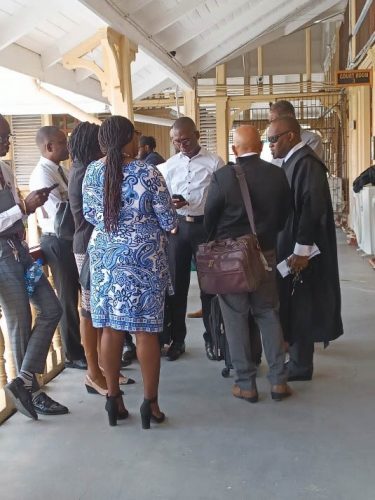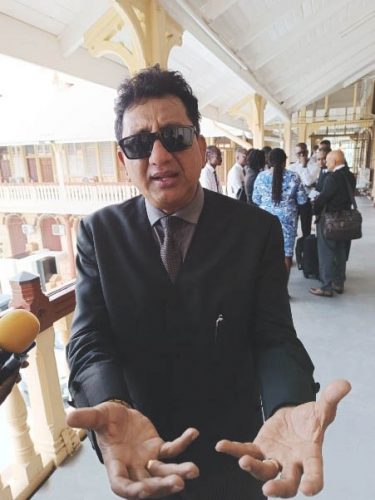Justice Sandil Kissoon will deliver his ruling on the matter of the Guyana Teachers’ Union (GTU) vs the Government of Guyana next week. The case seeks a declaration that a five-week strike was legal, that teachers are entitled to be paid for the time on strike, and that the government was discriminatory in halting the deduction of union dues from teachers’ salaries.
Yesterday, the court heard the arguments by the respective legal representatives in the matter. Representing the GTU, Attorney-at-Law Darren Wade submitted that there was no discussion on salary increases, which is a vital part of collective bargaining. He referenced international principles and argued against laws such as “no work, no pay,” stating that they have no place in modern society.

Senior Counsel Roysdale Forde, legal representative for the Guyana Public Service Union (GPSU), emphasised the importance of issues related to collective bargaining and highlighted evidence of dictatorial actions by the government in imposing wage increases without proper negotiations. Forde argued that the current matter is before the court because the dispute process failed and Chief Labour Officer Daneshwar Deonarine procured his judgement of the situation based on what was garnered from the Ministry of Education instead of reaching out to the union when they sought his assistance.
Attorney General Anil Nandlall for the government argued that the GTU’s case was defective and lacked key elements. He emphasised the absence of a constitutional right to strike in Guyana and warned against establishing a precedent that would entitle workers to payment without performing work. Nandlall also addressed the principle of freedom to strike versus the right to strike as outlined in the Constitution and international treaties.
Both sides believe that the upcoming ruling will have significant implications for the country’s jurisprudence and will potentially lead to necessary changes in how the government engages in collective bargaining with unions.
The judge noted that local cases could have been used to support arguments presented in court, by the applicants, and commended the extensive submissions and evidence provided by all parties.
Outside the courtroom, Nandlall was adamant that there is no right to strike in Guyana but rather only a freedom to strike which can result in consequences including but not limited to an employer’s right to deduct money from the salaries of striking employees.

Anil Nandlall
For his part, Forde stressed that the notion of ‘no work, no pay’ does not apply to Guyana. Forde further expressed his belief that a ruling in favour of his client could lead to essential changes in labour rights in the country.
Yesterday’s arguments followed a period of examination and cross-examination of witnesses and court-ordered mediation, resulting in the teachers’ strike being called off and the government being ordered to hold off on its intention to make deductions from the salaries of striking teachers.






